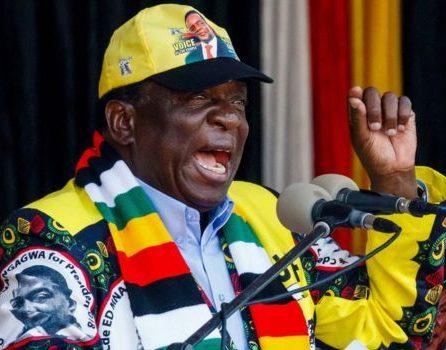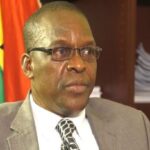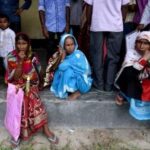
Voters in Zimbabwe are going to the polls in the country’s first election without the involvement of long-time leader Robert Mugabe.
The country’s founding president, Mr Mugabe was ousted last year after almost four decades in power.
[ads1]The main contenders in the presidential vote are incumbent Emmerson Mnangagwa, of the ruling Zanu-PF party, and opposition leader Nelson Chamisa.
Parliamentary and local elections are also taking place on Monday.
Polls give Mr Mnangagwa, thought to be 75, a narrow lead over his 40-year-old rival, who leads the MDC (Movement for Democratic Change) Alliance.
On Monday ex-president Robert Mugabe – who first came to power after independence in 1980 – said he would not vote for his successor.
The country is expecting a high turnout of first-time voters, where the youth vote is expected to be key. Almost half of those registered are under the age of 35.
Hundreds of international observers have been deployed to ensure the vote goes smoothly, but the opposition has repeatedly alleged irregularities in the voter roll.
They have also expressed concern over the security of ballot papers and voter intimidation in mainly rural areas.
The election follows decades of repressive rule which has brought severe economic challenges to Zimbabwe.
These include issues of investment, education, healthcare and jobs – some estimates suggest that the unemployment rate is as high as 90%.
President Mnangagwa, who is known as “the crocodile” because of his political shrewdness, has promised to deliver jobs and is seen as open to economic reforms.
He has survived several assassination attempts blamed on supporters of Mr Mugabe.
Mr Chamisa, who became an MP at the age of 25, could become Zimbabwe’s youngest president if elected.
He has promised to rebuild the country’s devastated economy, but been criticised for making extravagant promises – such as the introduction of a high-speed bullet train and bringing the Olympics to Zimbabwe.
But the qualified pastor will have been buoyed by comments Mr Mugabe made during a surprise news conference on Sunday.
Mr Mugabe, who resigned in November after the military took control of the country, refused to support his former ally Mr Mnangagwa.
“I cannot vote for those who tormented me,” he said. “I hope the choice of voting tomorrow will thrust away the military government and bring us back to constitutionality,”
When asked by the BBC’s Fergal Keane if he would like to see Mr Chamisa win, Mr Mugabe, 94, indicated that he was the only viable candidate.
In response to the comments, Mr Mnangagwa accused his former boss of making a deal with the opposition.
“It is clear to all that Chamisa has forged a deal with Mugabe, we can no longer believe that his intentions are to transform Zimbabwe and rebuild our nation,” he said.
Mr Mugabe also denied that, as president, he had planned to hand the leadership to his wife, Grace, saying it was “utter nonsense”.
Election in numbers
- 5,635,706 people have re-registered to a new voters’ roll; the opposition still has doubts about its accuracy
- 5% of registered voters are under 35
- 10,985 polling stations
- 16 years since EU and US observers were allowed to monitor elections
Source:BBC











